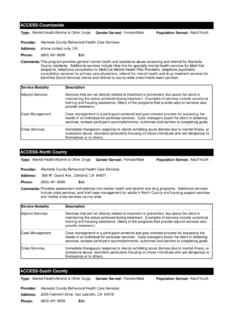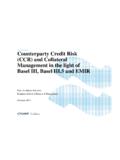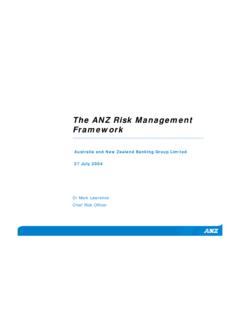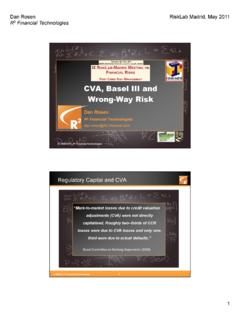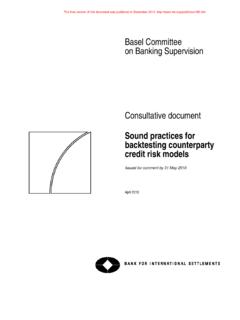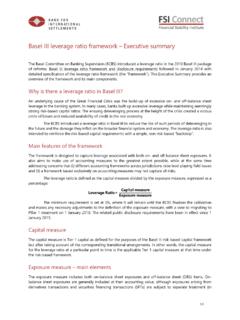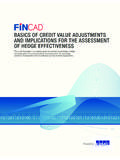Transcription of § 51341.1. Drug Medi-Cal Substance Use Disorder …
1 Drug Medi-Cal Substance Use Disorder services . 22 CA ADC OFFICIAL CALIFORNIA CODE OF REGULATIONS. Barclays Official California Code of Regulations Currentness Title 22. Social Security Division 3. Health Care services Subdivision 1. California Medical Assistance Program Chapter 3. Health Care services Article 4. Scope and Duration of Benefits (Refs & Annos). EMERGENCY REGULATIONS ENACTED. JULY 1, 2014. 22 CCR Drug Medi-Cal Substance Use Disorder services . DMC BENEFICIARY ELIGILIBITY DEFINED. (a.) Substance use Disorder services , as defined in this section, provided to a Medi-Cal beneficiary, shall be covered by the Medi-Cal program when determined medically necessary in accordance with Section 51303.
2 services shall be prescribed by a physician, and are subject to utilization controls, as set forth in Section 51159. DEFINITION OF TERMS: (b) For the purposes of this Section, the following definitions and requirements shall apply: (1) Admission to treatment date means the date of the first face-to-face treatment service, as described in Subsection (d), rendered by the provider to the beneficiary. (2) Beneficiary has the same meaning as in Section (3) Calendar Week means the seven (7) day period from Sunday through Saturday. (4) Collateral services means face-to-face sessions with therapists or counselors and significant persons in the life of a beneficiary, focusing on the treatment needs of the beneficiary in terms of supporting the achievement of the beneficiary's treatment goals.
3 Significant persons are individuals that have a personal, not official or professional, relationship with the beneficiary. (5) Counselor means any of the following: (A) A Certified AOD Counselor, as defined in Section 13005(a)(2) of Title 9, CCR. (B) A Registrant, as defined in Section 13005(a)(8) of Title 9, CCR. (6) County means the department authorized by the county board of supervisors to administer alcohol and Substance use Disorder programs, including Drug Medi-Cal Substance use Disorder services . (7) Crisis intervention means a face-to-face contact between a therapist or counselor and a beneficiary in crisis.
4 services shall focus on alleviating crisis problems. Crisis means an actual relapse or an unforeseen event or circumstance which presents to the beneficiary an imminent threat of relapse. Crisis intervention services shall be limited to stabilization of the beneficiary's emergency situation. (8) Day care habilitative services means outpatient counseling and rehabilitation services provided at least three (3) hours per day, three (3) days per week to persons with Substance use Disorder diagnoses, who are pregnant or postpartum, and/or to Early and Periodic Screening Diagnosis, and Treatment (EPSDT)-eligible beneficiaries, as otherwise authorized in this Chapter.
5 1. (9) Department means the State of California Department of Health Care services which is authorized to administer Drug Medi-Cal Substance use Disorder services . Whenever the Department contracts for Drug Medi-Cal Substance use Disorder services directly with a provider, the Department shall also assume the role and responsibilities assigned to the county under this section. (10) Face-to-face means occurring in person, at a certified facility. Telephone contacts, home visits, and hospital visits shall not be considered face-to-face. (11) Group counseling means face-to-face contacts in which one or more therapists or counselors treat two or more clients at the same time, focusing on the needs of the individuals served.
6 Group counseling shall be conducted in a confidential setting, so that individuals not participating in the group cannot hear the comments of the group participants, therapist or counselor. A beneficiary that is 17 years of age or younger shall not participate in group counseling with any participants who are 18 years of age or older. However, a beneficiary who is 17 years of age or younger may participate in group counseling with participants who are 18 years of age or older when the counseling is at a provider's certified school site. **Amendment SB1045 7/7/14: ODF Group Size is Minimum 2 & Maximum 12 Starting 1/1/15.
7 (A) For outpatient drug free treatment services and narcotic treatment programs, group counseling shall be conducted with no less than four and no more than ten clients at the same time, only one of whom needs to be a Medi-Cal beneficiary. (B) For day care habilitative services , group counseling shall be conducted with no less than two and no more than twelve clients at the same time, only one of whom needs to be a Medi- Cal beneficiary. (12) Individual counseling means face-to-face contacts between a beneficiary and a therapist or counselor. Individual counseling shall be conducted in a confidential setting, so that individuals not participating in the counseling session cannot hear the comments of the beneficiary, therapist or counselor.
8 (13) Intake means the process of admitting a beneficiary into a Substance use Disorder treatment program. Intake includes the evaluation or analysis of the cause or nature of mental, emotional, psychological, behavioral, and Substance use disorders ; the diagnosis of Substance use disorders utilizing the Diagnostic and Statistical Manual of Mental disorders Third Edition-Revised or Fourth Edition, published by the American Psychiatric Association; and the assessment of treatment needs to provide medically necessary treatment services by a physician. Intake may include a physical examination and laboratory testing ( , body specimen screening) necessary for Substance use Disorder treatment and evaluation conducted by staff lawfully authorized to provide such services and/or order laboratory testing within the scope of their practice or licensure.
9 (14) Medical psychotherapy means a type of counseling service that has the same meaning as defined in Section 10345 of Title 9, CCR. (15) Medication services means the prescription or administration of medication related to Substance use Disorder treatment services , or the assessment of the side effects or results of that medication conducted by staff lawfully authorized to provide such services and/or order laboratory testing within the scope of their practice or licensure. (16) Naltrexone treatment services means an outpatient treatment service directed at serving detoxified opiate addicts who have Substance use Disorder diagnosis by using the drug Naltrexone, which blocks the euphoric effects of opiates and helps prevent relapse to opiate addiction.
10 (17) Narcotic treatment program means an outpatient service using methadone and/or levoalphacetylmethadol (LAAM), directed at stabilization and rehabilitation of persons who are opiate addicted and have a Substance use Disorder diagnoses. For the purposes of this section, narcotic treatment program does not include detoxification treatment. (18) Outpatient drug free treatment services means an outpatient service directed at stabilizing and rehabilitating persons with Substance use Disorder diagnoses. 2. (19) Perinatal certified Substance use Disorder program means a Medi-Cal certified program which provides Substance use Disorder services , as specified in Subsection (c)(4), to pregnant and postpartum women with Substance use Disorder diagnoses.



